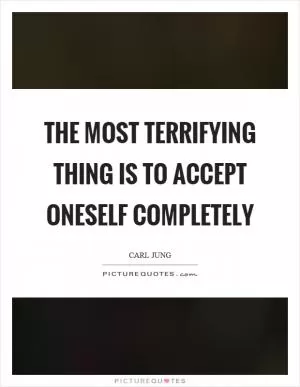The life that I could still live, I should live, and the thoughts that I could still think, I should think

The life that I could still live, I should live, and the thoughts that I could still think, I should think
Carl Jung, the renowned Swiss psychiatrist and psychoanalyst, believed in the importance of living a life true to oneself and embracing one's inner thoughts and feelings. He emphasized the significance of self-discovery and self-realization in order to achieve a sense of wholeness and fulfillment. Jung's quote, "The life that I could still live, I should live, and the thoughts that I could still think, I should think," encapsulates his philosophy of embracing one's potential and living authentically.Jung believed that each individual possesses a unique inner world that is waiting to be explored and understood. He emphasized the importance of delving into one's unconscious mind to uncover hidden desires, fears, and motivations. By acknowledging and accepting all aspects of oneself, including the shadow self, one can achieve a sense of inner harmony and balance.
Jung also believed in the power of self-reflection and introspection. He encouraged individuals to engage in deep contemplation and introspection in order to gain insight into their true selves. By exploring one's thoughts, emotions, and beliefs, one can gain a deeper understanding of their inner world and make conscious choices that align with their authentic self.
In the context of Jung's teachings, "The life that I could still live, I should live, and the thoughts that I could still think, I should think" serves as a reminder to embrace one's potential and live a life that is true to oneself. By exploring new possibilities, challenging limiting beliefs, and embracing one's innermost thoughts and feelings, one can unlock their full potential and live a life of authenticity and fulfillment.












 Friendship Quotes
Friendship Quotes Love Quotes
Love Quotes Life Quotes
Life Quotes Funny Quotes
Funny Quotes Motivational Quotes
Motivational Quotes Inspirational Quotes
Inspirational Quotes